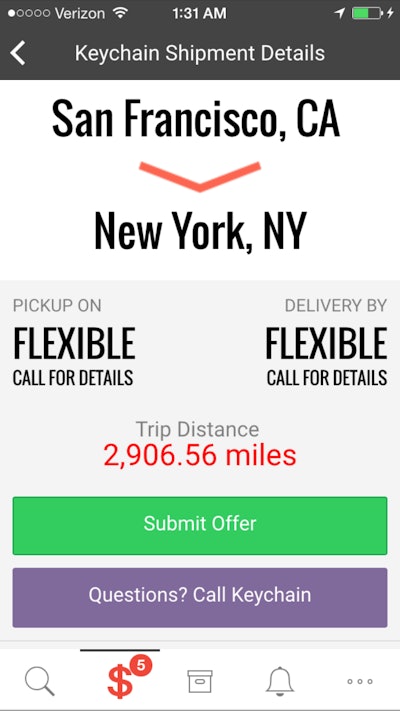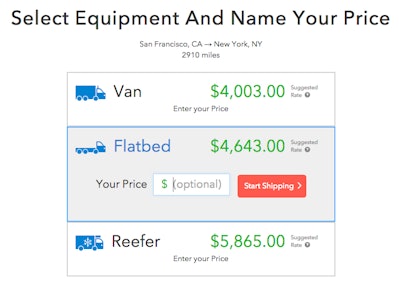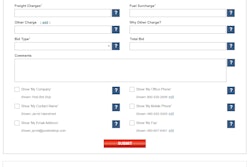On paper it doesn’t make sense. How can the popular ride-sharing service Uber be worth $41 billion? The company is less than six years old.
 Owner operators and fleet managers who use the app from Keychain can submit offers and instantly book loads.
Owner operators and fleet managers who use the app from Keychain can submit offers and instantly book loads.By creating a new economy — that’s how. Its simple smartphone app connects people looking for a ride at a moment’s notice with driver contractors. It dynamically calculates the rate for any point-to-point pickup and delivery service, tips included, and offers significant savings from the heavy regulated taxicab industry.
Uber’s contractors work wherever, whenever they want. And the company has virtually no overhead.
Freight transportation is more complex than moving people across town, but the Uber model is intriguing for the trucking industry.
Online load boards have long been used to facilitate transactions between shippers, brokers and carriers. But the actual dirty work, the rate negotiations, take place offline which adds time and cost to the transaction.
Keychain Logistics was founded in 2012 with the hopes of creating a single connection point between carriers and shippers. To do this, the company’s founder, Bryan Beshore, knew it needed to be more than a technology company; it also needed a brokerage license and cargo insurance.
“From the beginning, we knew we wanted to be a digital online marketplace broker,” says Ryan Kulp, director of growth and marketing for the San Fransisco, Calif.-based company.
Like any start up, it also needed a reliable supply of truck capacity to offer shippers in exchange for loads. The company accomplished this quickly by creating an app that owner operators and fleet managers use to search loads and post equipment to various third-party load boards.
The app gives visibility to between 40,000 and 200,000 loads each day. After a year of building a community of truckers, Keychain created a pricing algorithm that gives shippers and carriers an instant rate for shipping anywhere in the country. All you need to enter is a ZIP code combination.
 The software from Keychain uses an advanced algorithm that calculates instant shipping rates between any two ZIP codes for shippers.
The software from Keychain uses an advanced algorithm that calculates instant shipping rates between any two ZIP codes for shippers.Its algorithm factors 78 different variables such as diesel prices, routes, capacity in certain areas, and traffic. Recently, Keychain Logistics tweaked its pricing tool to allow shippers to input a maximum rate. The 10,000 drivers and fleet managers using its app do not see the amount. If they submit an offer that is within range, the software can automatically book the load for the carrier.
Keychain Logistics has staff that completes background and insurance checks on carriers in order to complete the registration process to transport loads through its own brokerage operation. Once the credentials are verified, the user gains full access to its loads that appear within a separate tab in the app. Currently, the company has between 10 and 20 loads available each day, Kulp says.
With its technology and low overhead, Keychain is able to keep its margin lower than other brokers, he says. Its margin is between 6 and 12 percent of the shipment.
Truckers can book loads from Keychain instantly and receive a direct deposit within about 24 hours after delivery. The app has tools to provide shippers with automatic tracking information and to submit images of delivery documents for payment.
To handle the complexities and uniqueness of loads, Keychain has instant messaging tools and notes that the shipper can fill out to communicate details. The simple user interface makes it possible for shippers to enter their load requirements in seconds and make a decision on whether or not to give Keychain a shot at moving their freight, he says.
While Keychain Logistics is not the only high-tech broker in the market today, its unique blend of mobile technology and pricing tools make it one to watch. For a recap of some recent developments in online freight matching, check out Overdrive Senior Editor Todd Dills’ work here.












